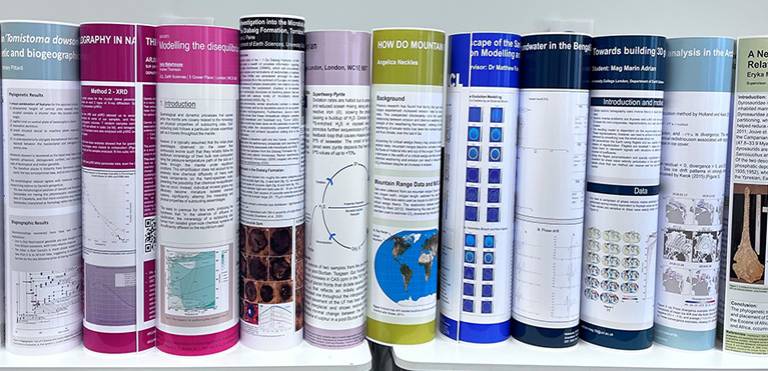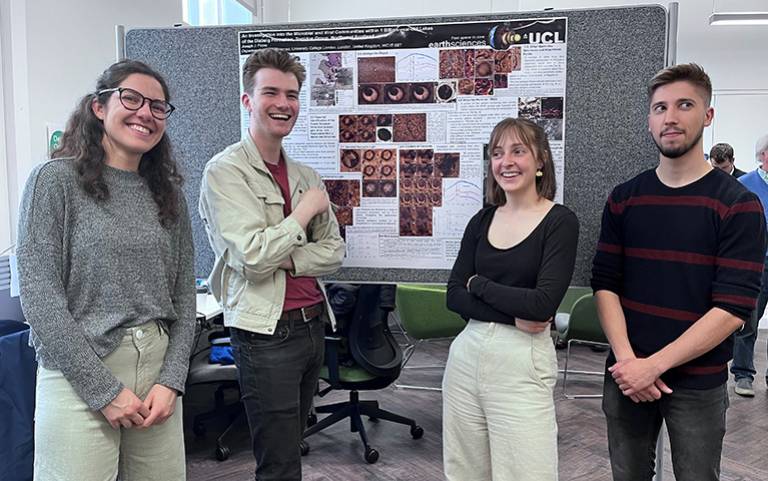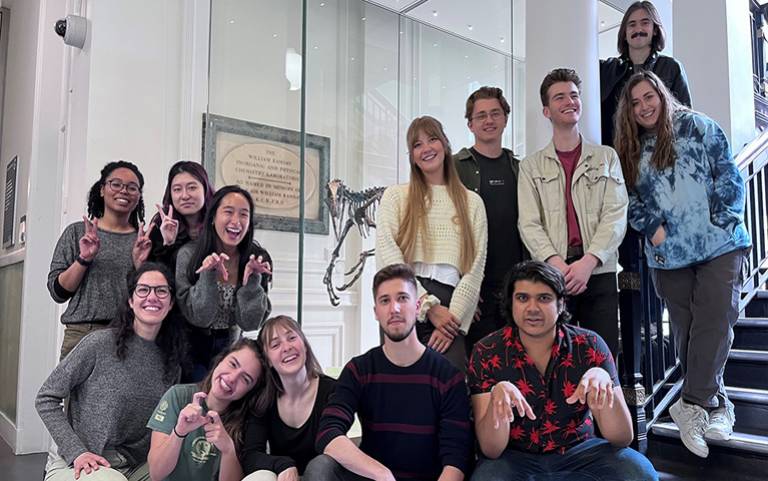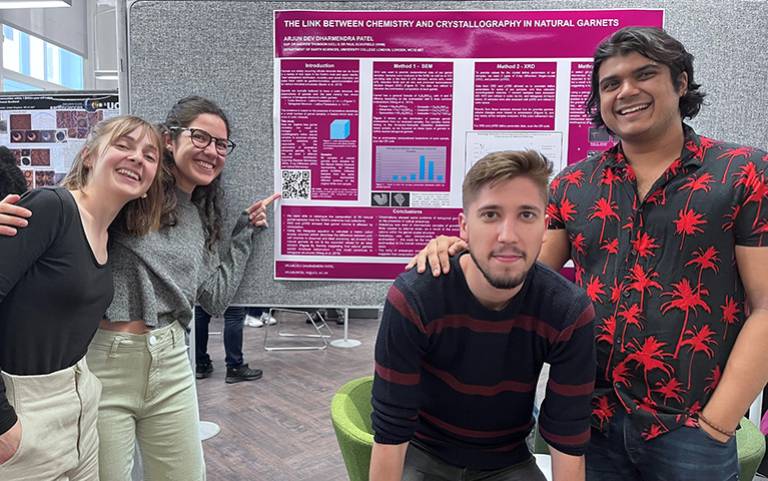Life in the aftermath (hopefully!) of the pandemic – MSci Poster Session “goes live” again
20 June 2022
One of the most important features of our MSci degree is that it gives our 4th-year students the opportunity to work with one of the Department’s research groups during their Independent MSci Project.

The past two years, though, have been a difficult time for students doing project work. In 2019-20, the pandemic struck late enough that many students had been able to complete at least the bulk of their experimental work or data gathering before “lockdown”, but in 2020-21 all of the MSci projects had to be constructed such that neither fieldwork nor the use experimental facilities were essential.

Happily, in 2021-2022, we have been able to return to a more normal way of working, with students making measurements in the laboratories and collecting samples in the field. The quality of the projects this year was very high and they covered an impressive range of topics, including: micro- and macro-palaeontology, aspects of climate change, landscape development, mantle mineralogy, the hydrogeology of the Bengal Basin, lake pollution in the Netherlands, and advanced seismic data processing.

Another consequence of the return to more normal working this year was that, for the first time since 2019, we were able to hold the MSci Poster Session in the Department as a live event. The posters themselves were preceded by “Micro-talks”, where the students had three minutes each in which to entice the audience to come to view their posters. The posters were followed by a buffet lunch in the Department for all students who were graduating with their MSci or BSc degrees this year; again, this is the first time we have been able to have the “Finalists’ Lunch” since June 2019.

The Department awards two prizes for the Independent MSci Projects. This year, the prize for the best project overall was won by Veerle Troelstra, supervised by Prof. John McArthur, for her work on the “Use of Cl/Br and Cl/B ratios as tracers for pollutant sources to surface water of Southwest Friesland, the Netherlands”. The prize for the best poster presentation was won by Samuel Bright, supervised by Prof. Paul Upchurch and Drs Susannah Maidment and Vincent Fernandez at the Natural History Museum, for his work on “Skull remains of the British Early Cretaceous ankylosaurian dinosaur Hylaeosaurus armatus: description and phylogenetic implications”.
 Close
Close

